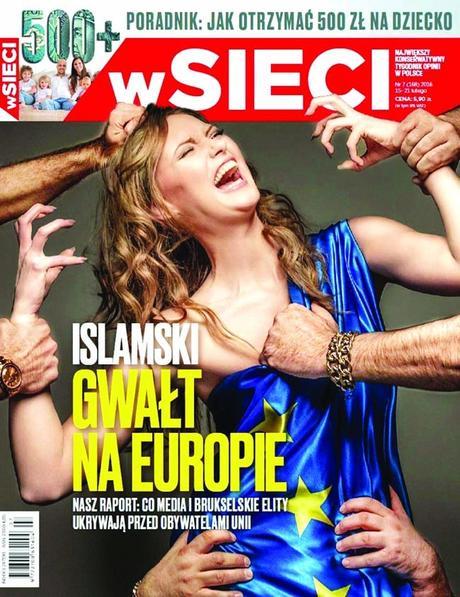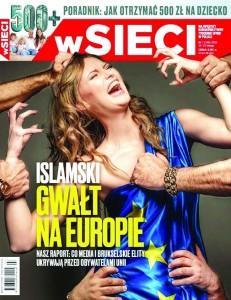
 As we wait for David Cameron to conclude Britain's renegotiation's with the EU in Brussels I wonder whether the details of this deal - whether it is judged to be 'good' or 'bad' - will be a deciding factor in whether I vote to stay or leave the European project.
As we wait for David Cameron to conclude Britain's renegotiation's with the EU in Brussels I wonder whether the details of this deal - whether it is judged to be 'good' or 'bad' - will be a deciding factor in whether I vote to stay or leave the European project.
There are things to commend Europe for. Keeping the peace since World War II may not be high on many referendum voters' minds, save the very oldest, but it is nevertheless an important reason for European cooperation. Many of our rights, from employment protection and consumer standards, to the European Courts decisions on a variety of subjects including immigration and human rights, flow from the mainland.
I simply do not have trust in the present Conservative government to safeguard those rights. Indeed the stability of political Europe guarantees that certain rights and standards remain in place regardless of changes in the governance of individual member states. This too is a reason to support Europe.
Nevertheless I've always been somewhat ambivalent towards Europe as a concept, not least because my mothers roots in Zimbabwe mean that when people talk about 'the continent' I don't automatically think about Europe. Internationalism is often defined as being a citizen of the world but many progressives won't admit that their version of internationalism is 90% Europe and 10% everywhere else.
I frequently wonder to what extent that self-defining as a European is based on an identity that identifies with people who look like them. I feel that my identity is bound up in how I feel about the European question. On a day-to-day basis I encounter more information, particularly on social media feeds, about what is happening in Africa, the Caribbean and in 'black America' than news from Europe.
This is counterbalanced by a vastly greater emphasis on Europe in mainstream coverage of international news. Yet invariably I notice whenever some bad news story from Europe hits the UK media there is a more shocking from the black world from outside Europe that not covered on TV and radio at the same time. Or sometimes I see stories that disproportionately affect people of colour in Europe that is ignored in the media.
This magnifying effect - seeing stories that are closer to home as being more important - is in some ways natural. Most of us are all 'local' and work out from there. Yet I am far from alone in taking an interest in local and national issues before jumping over mainstream Europe and paying attention to the rest of the world.
And I have almost certainly enjoyed more holidays in Africa than mainland Europe, if you count seeing family as a holiday. My last holiday was in Portugal last spring and there was hardly a black face in the tourist hotels. This popular destination jam-packed with Brits clearly wasn't as popular with black Brits.
Of course many British citizens of colour take holidays and breaks to Europe. It is often cheaper and quicker to reach than parts of the UK. Yet I do wonder if white Britons generally feel more identification with the European image than black Britons.
Free movement within Europe, one of the pillars of the EU project, is not always as free for BAME Brits even with a British passport. Being subject to extra questions, or even taken into a side room for an interrogation, while crossing internal European borders is far from unusual. I spoke to the Channel 4 News reporter Jamal Osman after he tweeted about being detained in an airport on his way from Germany to his home in the UK, and he was clear that his 'offence' was simply being black.
This issue came up in a recent report the Runnymede Trust, one of my employers, recently published on Race and Immigration. We ran several focus groups as well as analysing polling data, and it showed more ambivalence on the part of BAME UK citizens towards Europe than the general population. Being stopped at internal borders was one factor, and the reputation of parts of Europe for being racist was another.
The Polish magazine cover (pictured above) depicting a blonde European woman wrapped in an EU flag being sexually attacked by a frenzy of dark male hands, which was published yesterday, reinforces such impressions of Europe not being universally welcoming to people of colour. While the magazine was mounting an attack on Islam and referencing the Cologne sexual assaults, which was appalling enough, the fact that the hands attacking the woman were black and brown also speaks to prejudices that extend beyond Islamophobia.
When I think of Europe I see images of the rise of the Front Nationale in France, Far Right marches in eastern Europe, racial abuse in football grounds in Italy and the Balkans, and burning immigrant hostels in France and Germany. I remember the documentaries featuring black Europeans speaking about their experience of suffering racial attacks, and of segregated French suburbs that remain so because many of their citizens cannot get a job in Paris no matter how hard they try.
However entrenched racial inequality is in Britain there are parts of mainland Europe where people of colour have a much worse deal. Of course I don't just think about negative images of Europe. I think of the grand European capitals and cities, of cosmopolitan Amsterdam and northern Germany. But I certainly don't see Europe as the cradle of civilisation, not least because of my collection of African history books!
In that sense I probably fit into the typical median reaction that Runnymede found when interviewing BAME Brits on the question of Europe. Seeing the positive and negative and having mixed emotions and images of Europe.
The UKIP line, espoused by their immigration spokesman, the ambitious Steven Woolfe MEP, that Britain should look not to Europe but to the Commonwealth does not play with me. The Commonwealth is a hangover of colonialism where the wealth is concentrated in the hands of the 'mother country' yet the adopted children don't even get pocket money.
European preferential trade deals on raw goods like bananas and spices between the EU and the Caribbean, written while the memory of Imperial rule was fresh, have been eroded devastating their economies. Trade tariffs, a massive contradiction to the philosophy of free trade, continue to protect Europe from processed goods from outside. And reparations for enslavement, and the demands for the return of stolen artefacts and human remains, have been largely ignored.
Meanwhile France continues to indulge in military sorties to their former colonies and the rest of Europe colludes with the United States' geopolitical interests in Africa, and the International Criminal Court - essentially a European entity - has only ever prosecuted black Africans. This is not the Europe I feel affinity to.
On many aspects of Europe I find my attitudes and feelings torn in many directions. My support for the collective bargaining system that helps safeguard rights and standards for ordinary citizens is in conflict with my awareness that tackling racism - which is often more explicit and violent than in Britain - is not on the agenda. Protecting and expanding the economic strength of Europe is in conflict with the fact that much of that wealth and advantage was built on enslavement and colonialism, and reinforced by unfair and unequal trade to this day.
Add to that equation that my identity is both British and African but not necessarily European, and that my focus and interests are on British politics, race equality generally and the African Diaspora worldwide, and the inclination to vote to remain in the EU is fairly weak.
All in all I'm generally undecided and will wait to see what is in the deal that will probably be concluded this evening. The fact that immigration is perceived in many EU states as being negative, and that so many thousands of refugees died in the Mediterranean - for many years before it hit the headlines last summer - is another reason for not warming to the cause of remaining in Europe. The fact that the 'Stronger In' campaign are putting out leaflets with 13 faces, all of them white, has led me to tweet criticism of the failure of 'In' to appeal to Britain's BAME communities.
Faced with a straight choice of leave or remain, I am guessing that I may put my cross in the remain box, not least because being on the same side as Nigel Farage and Peter Bone would be a distressing experience. In my book cutting benefits for EU migrants (in-work, out-of-work and child benefits) does not make it a 'good deal'. In fact is a badge of shame.
But, like many citizens, I will look at the final deal and the commentary in British papers and make up my own mind. My decision will, however, be influenced not just by this but also by a range of other considerations, facts and feelings some of which I have touched on here.
